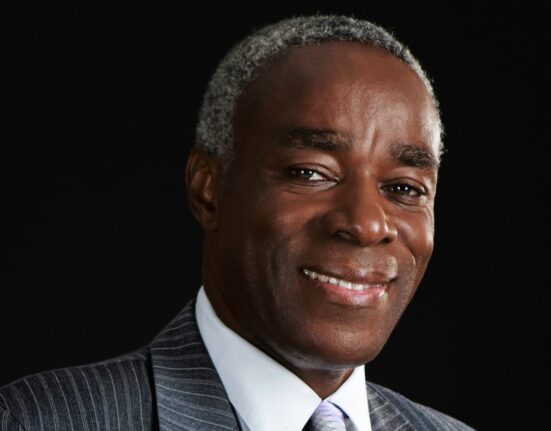By CHERYL A. RICHARDS
In view of the announcement by Sandrea Falconer, Minister of Information last December that work was far advanced for the submission to be made to Cabinet for the enactment of an Anti-Sexual Harassment Legislation, I thought it fitting to address this vexing issue of sexual harassment in the workplace.There is hardly anyone who would deny that in Jamaica it is a fairly well-established part of the cultural landscape that Jamaican men seem to think that they have the God-given right to impose themselves on our women on the streets and at the workplace.With our women now at the forefront and outnumbering men in most occupations and with women occupying very top positions in organisations they are now more likely to resist unwelcome advances from men. But the question is, have men adjusted their behaviour?
Definition of Sexual Harassment
The International Labour Organization in a 1996 Special Survey on its Discrimination (Employment and Occupation) Convention 1958 (No. 111) by the Committee of Experts on the Application of Conventions and Recommendations defined sexual harassment as:
[A]ny insult or inappropriate remark, joke, insinuation and comment on a person’s dress, physique, age, family situation, etc. a condescending or paternalistic attitude with sexual implications undermining dignity; any unwelcome invitation or request, implicit or explicit whether or not accompanied by threats; any lascivious look or other gesture associated with sexuality; and any unnecessary physical contact such as touching, caresses, pinching or assault.
CARICOM MODEL
At the regional level the Caribbean Community (CARICOM) issued model legislation on sexual harassment in 1991. The model Protection Against Sexual Harassment Act in Clause 2 (2) defines conduct of a sexual nature to include statements of a sexual nature concerning a person made to or in the presence of that person whether orally or in writing. Clause 3(4) seeks to describe what types of conduct constitute sexual harassment; thus it refers to the making of an unwelcome sexual advance or an unwelcome request for sexual favours or engaging in unwelcome conduct of a sexual nature.I have several issues with the CARICOM model legislation that will be addressed in this article. One such issue is that I find that the CARICOM model legislation is lacking in its definition of sexual harassment as this is not as clear or as broad as the ILO definition.
The Legal Standard for State Actors and Law Makers in Jamaica with regard to Sexual Harassment?Duty to comply with ratified international human rights conventions
State actors and lawmakers in Jamaica have a legal duty to comply with the terms of the international human rights conventions that Jamaica has ratified; for example, the Convention on the Elimination of All Forms of Discrimination Against Women (CEDAW) on October 19, 1984 and the Inter-American Convention on the Prevention, Punishment and Eradication of Violence Against Women on December 14, 2005.This means that Jamaica has a legal obligation to protect women from sexual violence including sexual harassment. It is required to put the necessary legal and administrative mechanisms in place to adequately protect women and to provide them with access to just and effective remedies.
Duty to comply with the Constitution as the supreme law
The Constitution of Jamaica, as the supreme law, guards the human rights of all persons within the country and holds the State accountable for violation of human rights. The obligation to protect human rights extends to a positive obligation on the State to protect women from sexual violence which includes sexual harassment.
What Does Sexual Harassment in the Workplace Really Mean?
What is the workplace?
The workplace can be described as any location where an employee provides work for an employer. Therefore the workplace can conceivably include not only the traditional places that we think of as workplaces such as: office, factory, store, farm, out-of-doors, but in this age of electronic communication, it doesn’t even have to be a physical location, that is, it can be a virtual workplace. A virtual workplace is not a physical place but a network of places where the employees are connected by the internet. It further includes, the employee’s home where the employer works at home for the employer, as well as telecommuting arrangements.
Who is a Sexual Harasser in the Workplace?
Is sexual harassment in the workplace only committed by an employer, supervisor, owner or fellow employee? The CARICOM model legislation only speaks to an employer or prospective employer, a supervisor or a fellow employee. However, in the Guide on Prevention of Sexual Harassment in the Workplace prepared by Women Watch China with technical support from the ILO, sexual harassment in the workplace can be committed by a customer or client as well.
(Final part of the article on harassment at th work place, next week)
By CHERYL A. RICHARDS
In view of the announcement by Sandrea Falconer, Minister of Information last December that work was far advanced for the submission to be made to Cabinet for the enactment of an Anti-Sexual Harassment Legislation, I thought it fitting to address this vexing issue of sexual harassment in the workplace.There is hardly anyone who would deny that in Jamaica it is a fairly well-established part of the cultural landscape that Jamaican men seem to think that they have the God-given right to impose themselves on our women on the streets and at the workplace.With our women now at the forefront and outnumbering men in most occupations and with women occupying very top positions in organisations they are now more likely to resist unwelcome advances from men. But the question is, have men adjusted their behaviour?
Definition of Sexual Harassment
The International Labour Organization in a 1996 Special Survey on its Discrimination (Employment and Occupation) Convention 1958 (No. 111) by the Committee of Experts on the Application of Conventions and Recommendations defined sexual harassment as:
[A]ny insult or inappropriate remark, joke, insinuation and comment on a person’s dress, physique, age, family situation, etc. a condescending or paternalistic attitude with sexual implications undermining dignity; any unwelcome invitation or request, implicit or explicit whether or not accompanied by threats; any lascivious look or other gesture associated with sexuality; and any unnecessary physical contact such as touching, caresses, pinching or assault.
CARICOM MODEL
At the regional level the Caribbean Community (CARICOM) issued model legislation on sexual harassment in 1991. The model Protection Against Sexual Harassment Act in Clause 2 (2) defines conduct of a sexual nature to include statements of a sexual nature concerning a person made to or in the presence of that person whether orally or in writing. Clause 3(4) seeks to describe what types of conduct constitute sexual harassment; thus it refers to the making of an unwelcome sexual advance or an unwelcome request for sexual favours or engaging in unwelcome conduct of a sexual nature.I have several issues with the CARICOM model legislation that will be addressed in this article. One such issue is that I find that the CARICOM model legislation is lacking in its definition of sexual harassment as this is not as clear or as broad as the ILO definition.
The Legal Standard for State Actors and Law Makers in Jamaica with regard to Sexual Harassment?
Duty to comply with ratified international human rights conventions
State actors and lawmakers in Jamaica have a legal duty to comply with the terms of the international human rights conventions that Jamaica has ratified; for example, the Convention on the Elimination of All Forms of Discrimination Against Women (CEDAW) on October 19, 1984 and the Inter-American Convention on the Prevention, Punishment and Eradication of Violence Against Women on December 14, 2005.
This means that Jamaica has a legal obligation to protect women from sexual violence including sexual harassment. It is required to put the necessary legal and administrative mechanisms in place to adequately protect women and to provide them with access to just and effective remedies.
Duty to comply with the Constitution as the supreme law
The Constitution of Jamaica, as the supreme law, guards the human rights of all persons within the country and holds the State accountable for violation of human rights. The obligation to protect human rights extends to a positive obligation on the State to protect women from sexual violence which includes sexual harassment.
What Does Sexual Harassment in the Workplace Really Mean?
What is the workplace?
The workplace can be described as any location where an employee provides work for an employer. Therefore the workplace can conceivably include not only the traditional places that we think of as workplaces such as: office, factory, store, farm, out-of-doors, but in this age of electronic communication, it doesn’t even have to be a physical location, that is, it can be a virtual workplace. A virtual workplace is not a physical place but a network of places where the employees are connected by the internet. It further includes, the employee’s home where the employer works at home for the employer, as well as telecommuting arrangements.
Who is a Sexual Harasser in the Workplace?
Is sexual harassment in the workplace only committed by an employer, supervisor, owner or fellow employee? The CARICOM model legislation only speaks to an employer or prospective employer, a supervisor or a fellow employee. However, in the Guide on Prevention of Sexual Harassment in the Workplace prepared by Women Watch China with technical support from the ILO, sexual harassment in the workplace can be committed by a customer or client as well.
(Final part of the article on harassment at th work place, next week)









